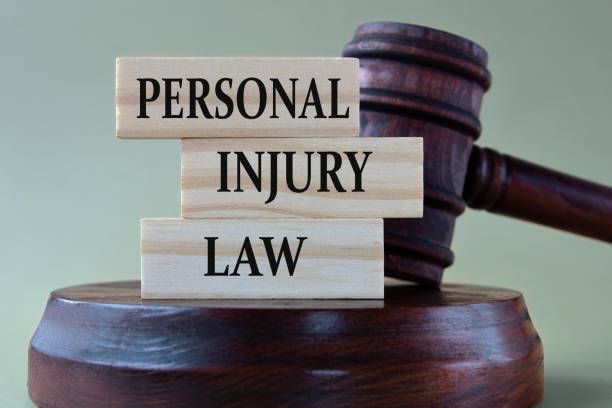August 10, 2020
1. DO NOT TALK TO THE POLICE I don’t care if you are innocent or guilty, it is NEVER in your best interests to talk to the police. I have seen many Innocent clients screw themselves over by talking to the police. Your words, your demeanor and your physical characteristics can all be misconstrued, misinterpreted and used against you in numerous ways. No matter how innocent you are or how good you are with your words, it is highly unlikely you will be able to talk yourself out of being arrested. Police officers love it when suspects talk to them. It gives them an opportunity to get a confession (or what they perceive to be one) out of the suspect. Once they get the confession, the case is usually closed and no more investigation is needed. Police officers will use all different types of tactics to obtain a confession. They have been known to tell individuals under investigation for crimes they have DNA evidence, when, in reality, no such evidence exists. They have professed to have an eye witness when no eye witness exists. They have alleged to have had confessions from other co-defendants when none exist. These types of tactics have been used by officers for years to get a suspect to confess to a crime. Police officers can and will lie to you. There is nothing illegal about an officer lying to you. Do not believe a police officer if they make promises to you. If they promise not to arrest you if you talk to them, that doesn’t mean they will not charge and/or arrest you later. The district attorney or U.S. Attorney is the only person who can make enforceable deals or agreements. 2. DO NOT TALK TO ANYONE ABOUT THE FACTS OR ALLEGATIONS Anyone you talk to (except your attorney) can be subpoenaed and forced to testify at your trial. Whether it’s your best friend, girlfriend, relative or co-worker, they can be compelled to tell the Court or the Jury what you said. On many occasions, the officer will have a friend or relative of the victim call you to confront you with the allegation. This conversation is then recorded and used against you in Court. Always expect that anyone talking to you about the allegations is recording the conversation. Law enforcement is using confidential informants more often than ever. You never know who is working with the police. 3. DO NOT CONSENT TO ANY SEARCH. Never consent to a search of your home, car or person whether you are innocent or guilty of a criminal offense. In most cases, the officers are seeking your permission to search because they lack the probable cause necessary to obtain a warrant for the search. If they threaten you with getting a search warrant, don’t worry. Make them get the warrant. They may not have enough evidence against you to obtain the search warrant. The harder they press for your consent, the less likely it is they have enough to get a search warrant. 4. DO NOT STEP OUTSIDE YOUR HOME If an officer comes to your house to talk to you, you are not required by law to talk to them. In many cases, the officer will ask you to step outside your home to talk. DO NOT STEP OUTSIDE YOUR HOME! They are usually doing this so they can arrest you. As long as you stay inside your home, they cannot enter to arrest you without a warrant. Also, do not invite the officer into your home. This will allow them to arrest you and also make notes of anything they see inside your home that is in their plain view. Do not open the door. Talk through the door. If you open the door, an officer may infer that as consent to enter your home. 5. GET AN EXPERIENCED CRIMINAL DEFENSE ATTORNEY IMMEDIATELY Do not call your family attorney. Do not call your business attorney. You need to call an experienced criminal defense attorney. Be sure they are a member of the National Association of Criminal Defense Attorneys. Make sure they devote at least 50% of their practice to criminal law. Finally, make certain they have handled the most serious of cases and have a proven track record of success at trials involving criminal charges. 6. DEMAND AN ATTORNEY. If you are unfortunate enough to get arrested, demand an attorney. You must make sure your request for an attorney is clear and unequivocal. Statements such as “Maybe I should get an attorney?” or “Do I need an attorney?” are not strong enough. You must be strong and demand an attorney. If you do not, officers will continue to probe and try to get information they can use to convict you. Exercise your 6th Amendment right to an attorney. 7. DO NOT LIE TO THE POLICE Lying to the police can result in additional criminal charges and in some cases, can lead to your arrest. You do not have to talk to the police. You are better to say absolutely NOTHING than to lie to the police 8. SAY “YES” TO A LIE DETECTOR TEST This may seem strange considering all of the other advice. Under Wisconsin Criminal Law, while the results of a lie detector test are generally not admissible in Court, your willingness to submit to a lie detector test MAY be admissible. When asked if you would submit to a lie detector, say “Absolutely”. Make it as clear as can be, but add, “so long as my attorney is present” First, it is unlikely they are going to give you the test as most police departments do not have polygraphs. Second, your willingness to submit to a lie detector may give the officer pause about arresting you, holding you, or referring your case to the District Attorney for criminal charges. Third, if they really do plan on giving you the polygraph, they will have to wait until you get your attorney. You can discuss whether to finally submit to a lie detector test with your attorney.













